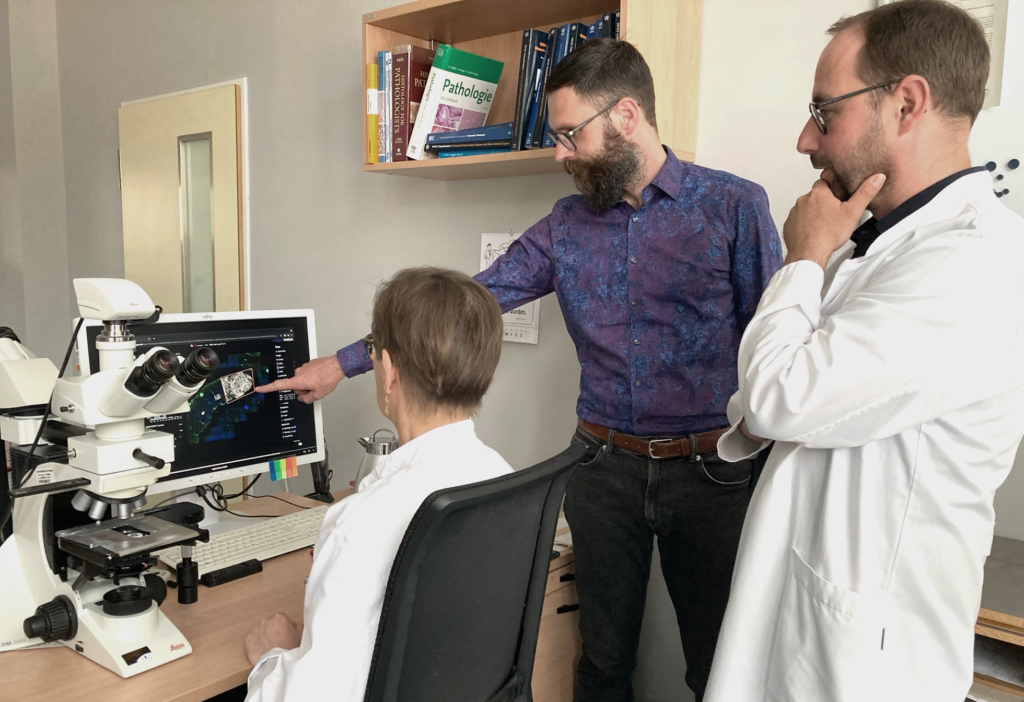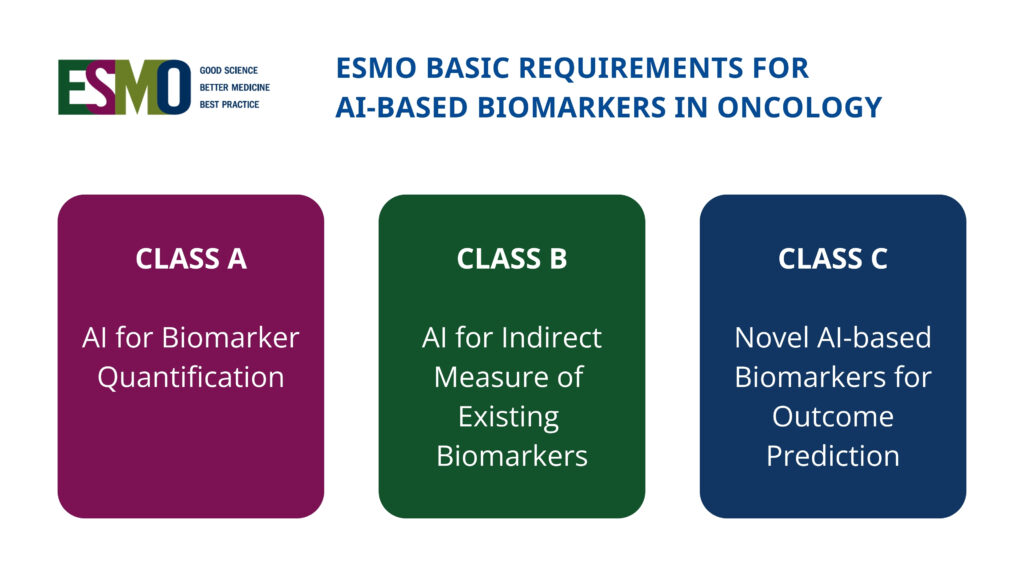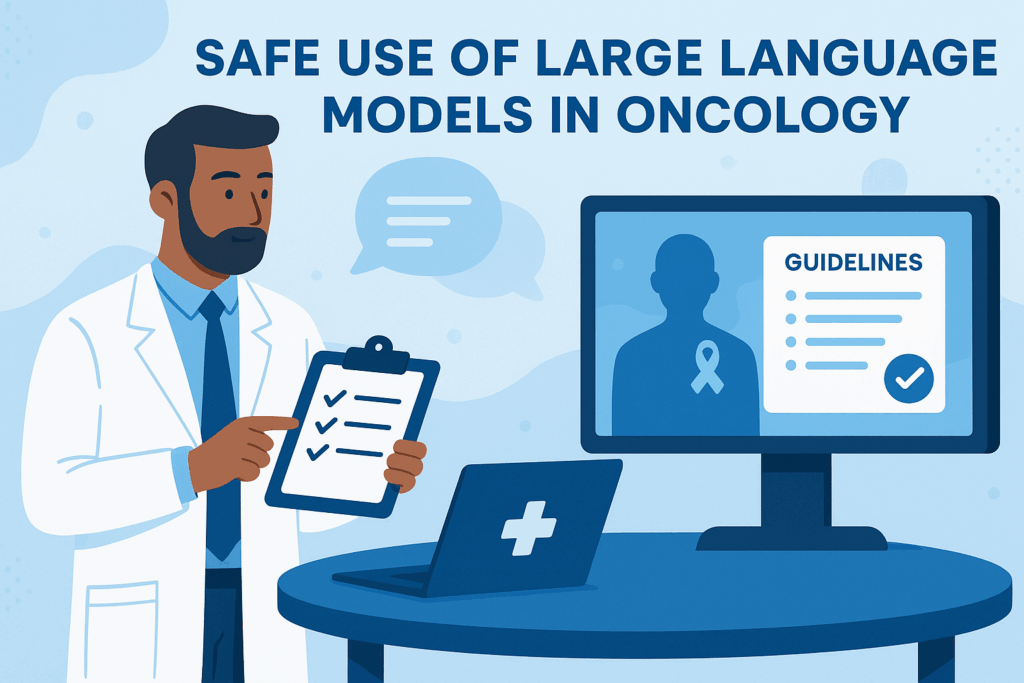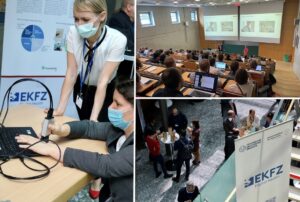Virtual companions, real responsibility
Dresden University Hospital and Dresden-based start-up asgen are currently working together to revolutionize breast and gastric cancer diagnostics with the help of AI. PAIKON is the name of the unique AI pipeline developed by asgen, which automatically analyzes microscopic images of entire tumor areas within minutes. This process, known as HER2-FISH analysis, examines the expression of tumor markers relevant to breast and gastric tumors in order to generate information about suitable forms of therapy. Until now, this analysis has been carried out manually. Asgen and the Institute of Pathology of the University Hospital Carl Gustav Carus Dresden are represented in EMPAIA, an AI flagship project of the German Federal Ministry for Economic Affairs and Energy (BMWi). With the help of the expertise at the institute, the AI solution is currently being trained and is expected to be standard in cancer screening in the near future.
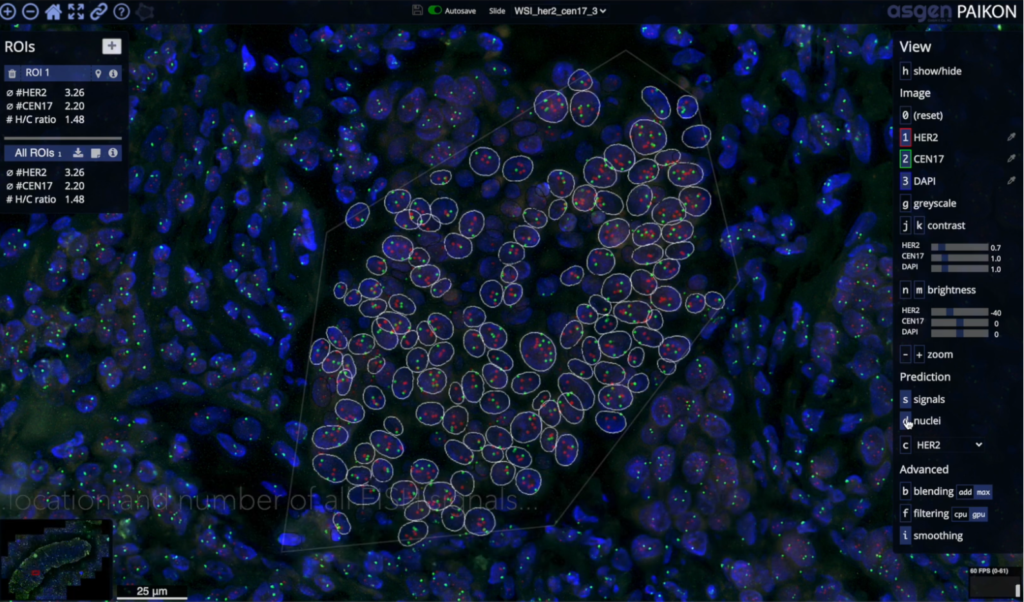
AI assisted FISH analysis of Whole Slide Images (Click for teaser video)
The “AI run” is thus continuing and is expanding more and more into the medical field. AI applications from industry are increasingly being tested clinically and could be used in more and more specialist areas in the future. The Else Kröner Fresenius Center for Digital Health at the University Hospital Dresden has just announced a new professorship for Clinical AI, which is intended to provide these applications with a high-profile scientific foundation. The aim is to address concrete, clinically relevant issues and to use AI methods to gain new insights into the pathomechanisms of diseases and the linking of clinical and imaging data and to develop new methods for the diagnosis and treatment of diseases.
For Professor Jochen Hampe, scientific spokesman of the EKFZ for Digital Health, the establishment of the professorship for Clinical AI is only the logical continuation of the path taken at Dresden University Hospital. “Artificial intelligences are playing an increasingly important role at the Dresden Campus and are being used more and more profitably. Together with the efforts from the EMPAIA project, important research foundations have thus been created, which can be expanded within the framework of a professorship,” says Prof. Hampe.
Internationally recognized research personalities from the mentioned research fields can apply until August 2.
More News
New international framework defines standards for AI-based biomarkers in oncology (EBAI)
New ESMO Guidelines: Safe use of large language models in oncology


